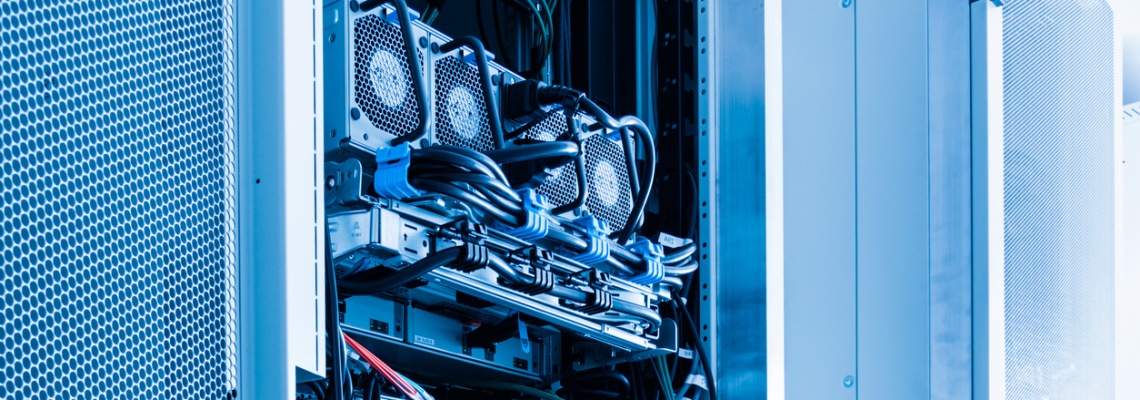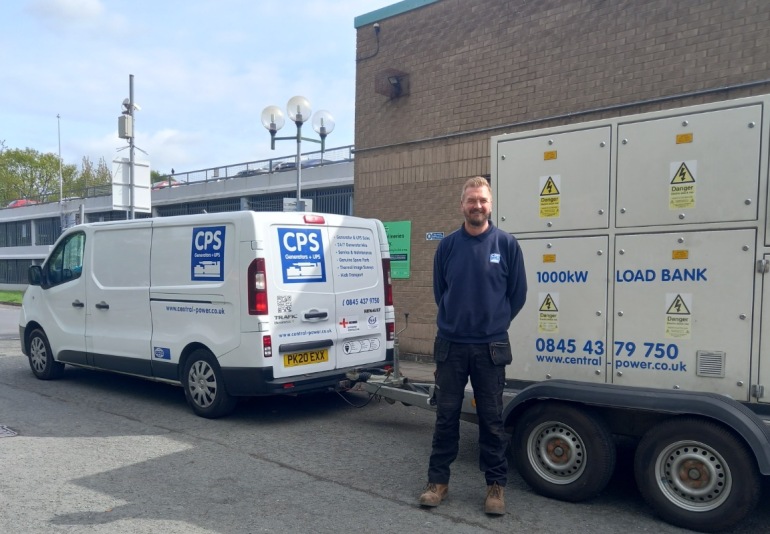What’s the difference between a UPS and a generator?
Date: 25/04/25
A question often asked when it comes to temporary power generation is ‘what’s the difference between uninterruptible power supplies (UPS) and standby generators?
While both provide backup power during outages, they serve distinct purposes with different operational characteristics.
How UPS systems work
A UPS is designed to detect power interruptions instantaneously and switch to stored energy within milliseconds (or less). This can be vital in circumstances when any lapse could have catastrophic consequences.
Modern UPS systems come in two main formats. A line-interactive UPS monitors incoming power and switches to battery backup only when necessary, making it a cost-effective choice for less critical applications. When called upon, the switchover is so quick that there is no noticeable drop in power within a facility.
The more advanced double-conversion UPS, meanwhile, continuously processes incoming electricity, filtering out surges and noise while providing an uninterrupted power stream – ideal for the most sensitive electronic environments.
The runtime of a UPS system depends directly on its battery capacity. Standard configurations typically provide around 30 minutes of backup power, while extended runtime systems can sustain critical loads for several hours. Specialised installations with large battery banks can maintain power even longer, though such solutions require significant space and maintenance considerations.
It's important to note that all battery-based systems experience gradual degradation, typically requiring replacement every 3-5 years for a standard life battery. Large UPS installations also generate substantial heat, necessitating robust cooling infrastructure to maintain optimal operating conditions. Regular maintenance is essential and should include ongoing battery testing, annual system inspections, and frequent cleaning of air filters and cooling components.
It's essential to consider the total lifetime costs of a UPS rather than just the initial capital expenditure. The systems operate continuously as complex electromechanical devices and, as mentioned, require periodic replacement of key components throughout their service life.
How generators work
Compared to a UPS, a generator is more of a workhorse that keeps facilities operational through prolonged periods without mains power. Generators produce their own electricity, typically using a fuel such as diesel. Within seconds of an outage an automatic transfer switch senses the power loss and instructs the generator to start, before transferring the load to it.
Generators offer a virtually unlimited runtime as long as fuel supplies remain available. However, they need approximately 10 seconds to come to life and stabilise power output, making them unsuitable alone for protecting equipment that cannot tolerate even brief energy supply interruptions.
They can also require significant space and proper ventilation. Fuel must be stored safely and replenished periodically. Noise and exhaust gases can provide potential challenges in certain settings.
As they are used only intermittently and are fundamentally simpler mechanical designs, generators typically require less intensive servicing and refurbishment than a UPS – although they still require periodical maintenance.
What system do I need?
This depends largely on your specific application requirements. UPS systems excel in protecting sensitive electronic equipment where even momentary power loss could cause data corruption, operational disruption or threats to health and safety. Generators prove more suitable for maintaining whole-facility operations during extended outages.
The best approach to ensure consistent power during mains failures is often to implement both systems in coordination. In such combinations, the UPS ensures immediate and undisrupted power during an outage while the generator starts up in the background. Once the generator is up and running, the load is switched over by the load transfer panel and the generator powers the building.
However, there are circumstances where decision-makers may opt for just a UPS or a generator. For example, when space is limited or there are restrictions around storing fuel, a UPS on its own may be the only feasible option. While this will limit how long back up power can be relied upon, it will at least allow for shut down in a controlled manner for sensitive IT facilities and similar, meaning that there will be no sudden loss of crucial data.
Likewise, if momentary power loss is not deemed catastrophic and a facility could survive loss of power for a few seconds – such as in certain hospitality or retail environments, for example – the costs involved with a UPS may be deemed prohibitive and a backup system put in place featuring just generators.
Making the best choice
The most effective backup power solutions carefully balance immediate protection against short interruptions with the ability to sustain operations during prolonged outages, all while maintaining cost-effectiveness and reliability over the system's operational lifetime.
Most often, this will mean a system that leverages the unique benefits of both UPSs and generators in unison, but in some circumstances, only one type of backup power device will suffice.
If you’re considering what backup system is most suitable for your facility, get in touch for expert guidance on selecting and designing a solution that is optimised for your specific requirements.
0 Comment
Add your Comment
We have the ability to edit and/or delete posts and comments. Links should be relevant to the topics. Please note all comments are subject to review before inclusion.




Nobody has commented yet. Why not add one?